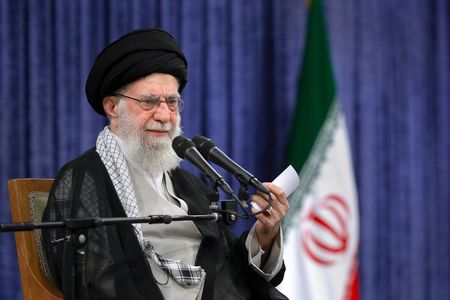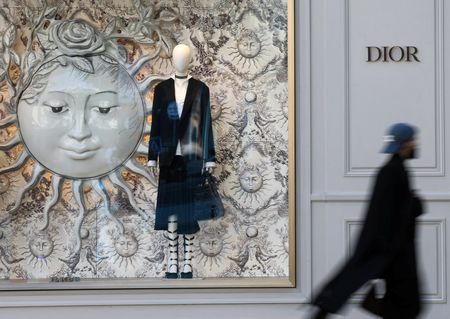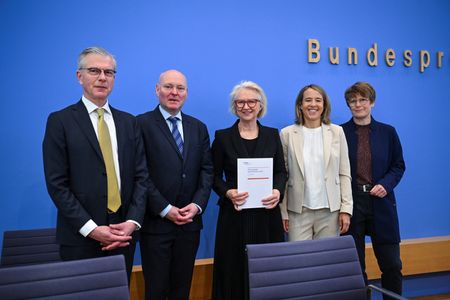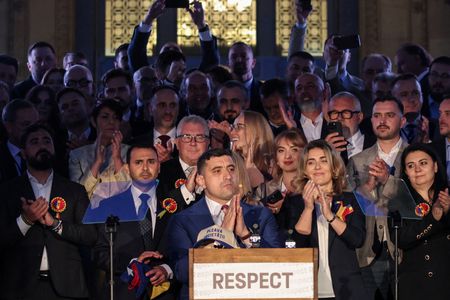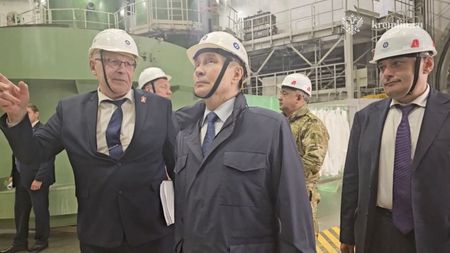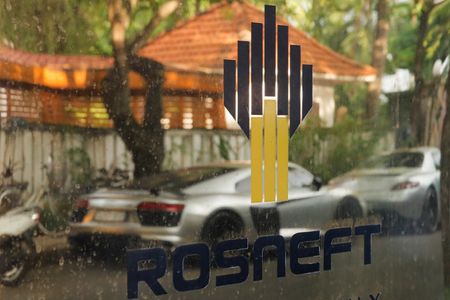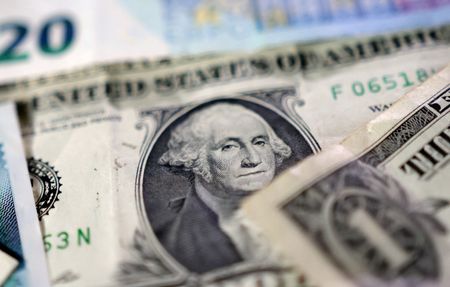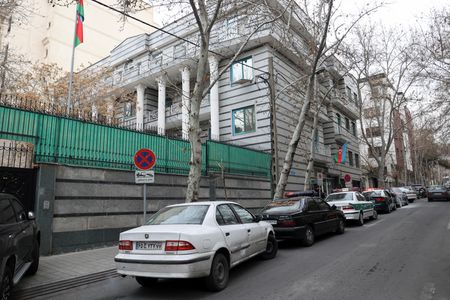By Parisa Hafezi, John Irish
DUBAI/PARIS (Reuters) -While rising U.S.-Iran tensions over Tehran’s uranium enrichment jeopardize nuclear talks, three Iranian sources said on Tuesday that the clerical leadership lacks a clear fallback plan if efforts to resolve a decades-long dispute collapse.
With negotiations faltering over clashing red lines, Iran may turn to China and Russia as a “Plan B”, the sources said, but with Beijing’s trade war with Washington and Moscow distracted with its war in Ukraine, Tehran’s backup plan appears shaky.
“The plan B is to continue the strategy before the start of talks. Iran will avoid escalating tensions, it is ready to defend itself,” a senior Iranian official said.
“The strategy also includes strengthening ties with allies like Russia and China.”
On Tuesday, Iran’s Supreme Leader Ayatollah Ali Khamenei rejected U.S. demands to halt uranium enrichment as “excessive and outrageous”, warning that the talks are unlikely to yield results.
After four rounds of talks aimed at curbing Iran’s nuclear programme in return for sanctions relief, multiple stumbling blocks remain. Tehran refuses to ship all of its highly enriched uranium stockpile abroad or engage in discussions over its ballistic missile programme, two of the Iranian officials and a European diplomat said.
The lack of trust on both sides and President Donald Trump’s decision to pull out of a 2015 accord with world powers has also raised the importance for Iran of getting guarantees that Washington will not renege on a future accord.
Compounding Tehran’s challenges, Iran’s clerical establishment is grappling with mounting crises – energy and water shortages, a plummeting currency, military losses among regional allies, and rising fears of an Israeli attack on its nuclear sites – all exacerbated by Trump’s hardline policies.
With Trump’s speedy revival of a “maximum pressure” campaign on Tehran since February, including tightened sanctions and military threats, the sources said, Iran’s leadership “has no better option” than a new deal to avert economic chaos at home that could threaten its rule.
Nationwide protests over social repression and economic hardship in recent years, met with harsh crackdowns, have exposed the Islamic Republic’s vulnerability to public anger and triggered sets of Western human rights sanctions.
“Without lifting sanctions to enable free oil sales and access to funds, Iran’s economy cannot recover,” said the second official, who like others asked not to be identified due to sensitivity of matter.
Iran’s foreign ministry was not immediately available for comment.
A THORNY PATH
Wendy Sherman, former U.S. Undersecretary for Political Affairs who led the U.S. negotiating team that reached the 2015 accord between Tehran and six world powers, said it was impossible to convince Tehran to “dismantle its nuclear programme and give up their enrichment even though that would be ideal”.
“So that means they will come to an impasse, and that we will face the potential for war, which I don’t think, quite frankly, President Trump looks forward to because he has campaigned as a peace president,” she said.
Even if enrichment disputes narrow, lifting sanctions remains fraught. The U.S. favours phasing out nuclear-related sanctions, while Tehran demands immediate removal of all restrictions.
Dozens of Iranian institutions vital to Iran’s economy, including its central bank and national oil company, have been sanctioned since 2018 for “supporting terrorism or weapons proliferation”.
When asked about Iran’s options if talks fail, Sherman said Tehran would likely “continue to circumvent sanctions and sell oil, largely to China, perhaps India and others”.
China, Iran’s primary oil buyer despite sanctions, has helped stave off economic collapse, but Trump’s intensified pressure on Chinese trade entities and tankers threatens these exports.
Analysts warn that China and Russia’s support has limits. China insists on steep discounts for Iranian oil and may push for lower prices as global oil demand weakens.
If talks collapse – a scenario both Tehran and Washington hope to avoid – neither Beijing nor Moscow can shield Iran from unilateral U.S. and EU sanctions.
France, Britain and Germany, though not part of the U.S.-Iran talks, have warned they would reimpose U.N. sanctions if no deal emerged quickly.
Under the 2015 nuclear pact’s U.N. resolution, the E3 have until October 18 to trigger the so-called “snapback mechanism” before the resolution expires.
According to diplomats and a document seen by Reuters, the E3 countries may do this by August if no substantial deal can be found by then.
Diplomats warn that getting a deal before then would mean, in the best case scenario, an initial political framework like in 2013 whereby both sides offer some immediate concrete concessions giving time for a more detailed negotiation.
“There is no reason to think it will take less time than the 18 months in 2013 especially when the parameters and the geopolitical situation is more complicated now,” a senior European official said.
(Writing by Parisa Hafezi and John Irish; Editing by Stephen Coates)

